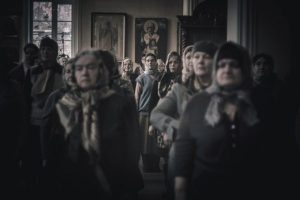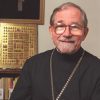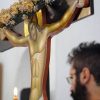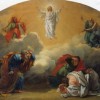Question: When Church Fathers such as Cyprian of Carthage make such bold statements as, “He cannot have God for his Father, who has not the Church for his mother,” does that mean that all non-Orthodox people are going to hell? What is the Orthodox perspective on the condition of Christians and non-Christians outside of the Holy Orthodox Church?
Fr. Bill Olnhausen responds:
Orthodox theologian Georges Florovsky was even bolder when he wrote, “Outside the Church there is no salvation, because salvation is the Church.” Let’s define terms. “Salvation” (soteria in Greek) means spiritual wholeness, health. Salvation is not an instant experience, nor is it a reward for getting a passing grade in holiness, nor is it the result of God’s arbitrarily waiving heaven’s entrance requirements.
Salvation is the successful completion of a long process of spiritual growth, until finally we become “perfect, just as [our] Father in heaven is perfect” (Matthew 5:48). Salvation consists of becoming holy. In order to be saved, we must cooperate with God’s saving process. This requires a correct understanding of God, a right relationship with God-“true doctrine” and “true worship.”
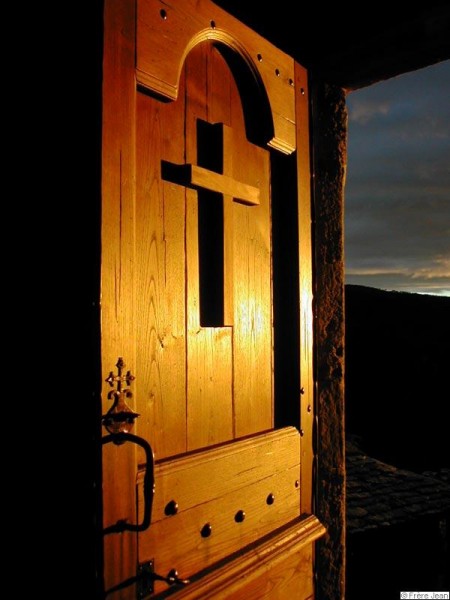
Photo by Hieromonk Herasim Gascuel, www.pravmir.ru
The Church is essential to salvation for many reasons:
1) We cannot save ourselves. God alone can save us. The only way to perfection and eternal life is through union with the eternal and all-perfect God who is life, and who pours His saving power into us. God is salvation.
2) Jesus Christ is God Incarnate, through whom we are united with God. “No one comes to the Father except through Me” (John 14:6). “Without Me you can do nothing” (John 15:5). Jesus Christ is salvation.
3) The Church is the Body of Christ, an essential part of Christ’s Incarnation, through which we are united with Christ. We are saved in the midst of a community. Salvation is not individual, but corporate. The Church is where Christ our God saves us. Therefore, the Church is salvation and salvation is found in the Church.
4) Orthodox believe that by His grace God has revealed and preserved “true doctrine” and “true worship” in the Holy Orthodox Church. The Orthodox Church is the true Church.
Does this mean that all now outside the Church will go to hell? No. Bishop Kallistos Ware suggests that “While there is no division between a `visible’ and an ‘invisible’ Church yet there may be members of the Church who are not visibly such, but whose membership is known to God alone. If anyone is saved, he must in some sense be a member of the Church; in what sense we cannot always say” (The Orthodox Church, p. 248, 1993 edition). Christ our God may be working in others in ways unknown to us and even to them, to bring them to salvation. And in due time, perhaps not till after death, they may recognize God and accept Christ and be united to His Body the Church-so that they can be saved.
This is in accord with the teaching of Christ. In the parable of the sheep and the goats (Matthew 25), notice that it is the “nations” (v. 32), the nonbelievers, who are being judged (this is obvious, because they are surprised to learn that Christ dwells in the needy), and some of them are welcomed into the “kingdom prepared for [them] from the foundation of the world” (v. 34).
Regarding God’s mysterious work outside the Orthodox Church, we have nothing to say. We make no judgments about what God is doing there, or about what happens to the souls of those who are not Orthodox or not Christian on earth. It is all we can do to try to “work out [our] own salvation with fear and trembling” (Philippians 2:12).
Source: Beliefnet













